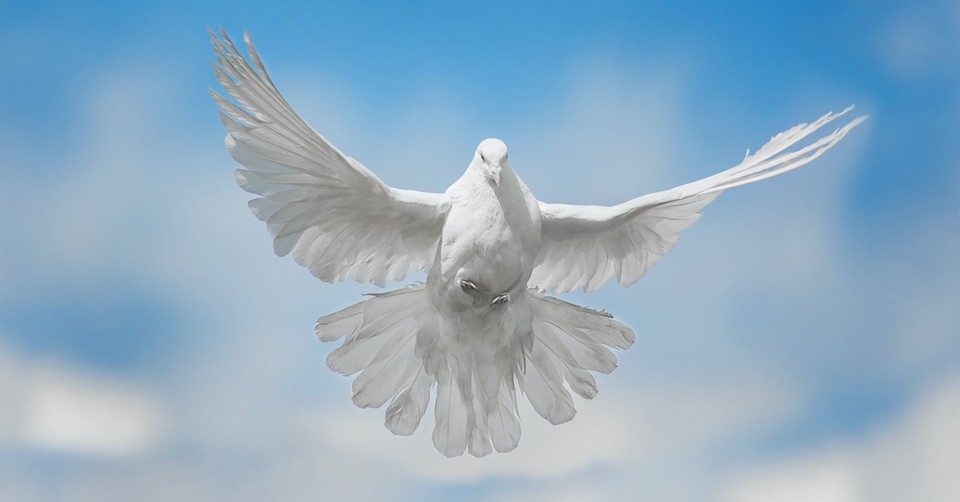What Is Pentecost and What Should Christians Know about This Event?

Right before Jesus ascended into heaven, he instructed his followers to stay in Jerusalem until the event happened. What event? They didn’t know. So they waited. Ten days later, the Holy Spirit stepped onto the scene and indwelled all of them in an event known as Pentecost. What is Pentecost? As discussed below, it’s the birthday of the church, when the Holy Spirit indwelled believers, and after they spoke in Jerusalem, they converted the first few thousand to the church.
But Pentecost didn’t take place ten days after the ascension by accident. It happened to fall during Shavuot, a Jewish harvest festival, showing that the seeds God had planted had finally come to harvest through the empowerment of the Holy Spirit. In this article, we’ll dive into what Pentecost is, and why Christians should know about this important event in church history.
Get your FREE Easter Guide here. Have encouragement delivered straight to your inbox!
What Is Pentecost?
First, we have to establish what Pentecost is. As mentioned before Pentecost fell on an important harvest festival in the Jewish calendar. And according to Ed Jarrett, this didn’t happen by accident.
“The second chapter of Acts records the coming of the promised Holy Spirit (Acts 1:4-8) at the Jewish celebration of Shavuot. Because of this, Christians also celebrate Pentecost. But not as a harvest festival or a remembrance of the giving of the Law, but as the coming of the Holy Spirit. However, I do not believe that it is coincidental that God chose this day to send the Holy Spirit. The Shavuot was a celebration of the first fruits of the year’s harvest. And, in a sense, that is what Pentecost is to Christians. Those believers in Jerusalem on that momentous day were the “first fruits” of the great harvest that was just beginning. As the Passover and Exodus were a foreshadowing of Good Friday and Easter, so the Shavuot was a foreshadowing of Pentecost.” —Ed Jarrett
As described before, this event serves as the catalyst for the church, the very first time the church became an entity. However, some people do disagree with this term:
“Some use a memorable but muddled expression to describe Pentecost: “The Birthday of the church.” While we admit the significance of the public unveiling of the body of Christ to the world, Pentecost is not really a birthday. The church—the assembly (ekklesia) of all of God’s people—includes believers in the Old Testament. Did not St. Stephen speak of the “church in the wilderness” when describing Moses and the people of God?” —Dr. Michael A. Milton
In either case, the Holy Spirit did not permanently indwell people until this event, which shows the exponential importance of its existence and why we should stamp it onto our memory.
How Did Pentecost Start?
Pentecost starts in a locked room with believers waiting. A violent wind sounds. Then what looks like tongues of fire rests on the followers of Jesus, the indwelling of the Holy Spirit. The event. They go out and begin to preach to the people of Jerusalem. Because of the holiday, it would’ve drawn people who spoke many languages into the city.
The Holy Spirit allows them to speak in many languages to accommodate. At first, people think the followers of Jesus have drunk too much. But once Peter addresses the crowd, they change their thinking. He gives a Gospel presentation and many convert.
According to What Is Pentecost and How Did it Start: “The Holy Spirit filled the Church with power and added 3,000 new believers. The account in Act 2 reports that, after Jesus ascended into heaven, Jesus’ followers were gathered together for the Feast of Harvest (aka Pentecost), and the Holy Spirit “filled the whole house where they were sitting” (Acts 2:2). “All of them were filled with the Holy Spirit and began to speak in other tongues as the Spirit enabled them” (Acts 2:4). This strange occurrence drew a large crowd, and Peter stood up to speak to them about repentance and the gospel of Christ (Acts 2:14). By the end of the day that the Holy Spirit came, the Church grew by 3,000 people (Acts 2:41). This is why Christians still celebrate Pentecost. John Gill expresses the significance in his commentary: “Through this baptism of the Holy Ghost and fire, the apostles became more knowing, and had a greater understanding of the mysteries of the Gospel, and were more qualified to preach it to people of all nations and languages.” — Dr. Ray Pritchard
Pentecost begins in a room of followers and ends with thousands of people who want to pursue a relationship with Christ.
What Is the Meaning and Purpose of Pentecost?
“Why was the Holy Spirit given to the Church on an agricultural thanksgiving holiday? The Holy Spirit “pour[ing] out on all people” was first prophesied in Joel 2:28-32, which Peter quoted in Acts 2:16-21 when he proclaimed the prophecy had been fulfilled by the events witnessed by the Jerusalem crowd that dramatic Sunday. Understanding the nuanced connections between when this event was prophesied in Joel and when it happened in Acts adds deeper meaning to the holiday still celebrated by Christians today.” —Dr. Charles Stanley
Pentecost has multiple meanings. Most importantly, it marks the time when the Holy Spirit permanently indwells us. This had never happened before in history. Throughout the Old Testament, the Holy Spirit would empower people, but never permanently indwell.
It also shows God as the Lord of the harvest. All the seeds and promises he had planted in the Old Testament and during the time of Jesus come to fruition here. No longer do the people of Israel have to rely on a High Priest or prophet to communicate with God. They have the opportunity to come into a personal relationship with him and receive the Holy Spirit.
Passover can often be overlooked in the church calendar, but without Passover, we would have no church. Because of the Holy Spirit indwelling believers in Acts 2, we see promises fulfilled, the harvest reaped, and a new chapter in the history of the church beginning.
When Is Pentecost?
“According to Wikipedia, the date for Pentecost varies each year as it is observed on the seventh Sunday from Easter. The earliest possible date is May 10 (as in 1818 and 2285). The latest possible date is June 13 (as in 1943 and 2038). The day of Pentecost is seven weeks after Easter Sunday: in other words, the fiftieth day after Easter inclusive of Easter Sunday. Because Easter itself has no fixed date, this makes Pentecost a changeable holiday. While Eastern Christianity views Pentecost as the last day of Easter in its ceremonies, in the Roman sacrament it is normally a distinct holiday. The fifty days from Easter Sunday to Pentecost Sunday may also be known as Eastertide. Because Pentecost itself is on a Sunday, it is typically recognized to be a public holiday in countries with large Christian denominations.” —When Is Pentecost This Year, and Why Do We Celebrate It?
This year Pentecost will happen on Sunday, June 19, 2024. But for whatever year in which you read this article, count 49 days after Easter Sunday (50 including Easter) and you’ll reach Pentecost. It always falls on a Sunday.
More Resources
What Are Pentecost and Shavuot? 10 Things Christians Should Know
Photo credit: ©GettyImages/Epitavi
This article is part of our larger Holy Week and Easter resource library centered around the events leading up to the death and resurrection of Jesus Christ. We hope these articles help you understand the meaning and story behind important Christian holidays and dates and encourage you as you take time to reflect on all that God has done for us through his son Jesus Christ!
What is Lent? It's Meaning and Why We Celebrate
When is Lent? When Does Lent Start and End?
What is the Meaning Ash Wednesday?
What is Holy Week?
What Is the Meaning of Palm Sunday?
What is the Meaning of Holy Monday?
What is Maundy Thursday?
What Is Good Friday and Why is it Good?
Good Friday Prayer
What Does Holy Saturday Mean?
What Is the Easter?
Easter Prayers
Powerful Facts About the Cross of Jesus
Originally published February 15, 2024.




